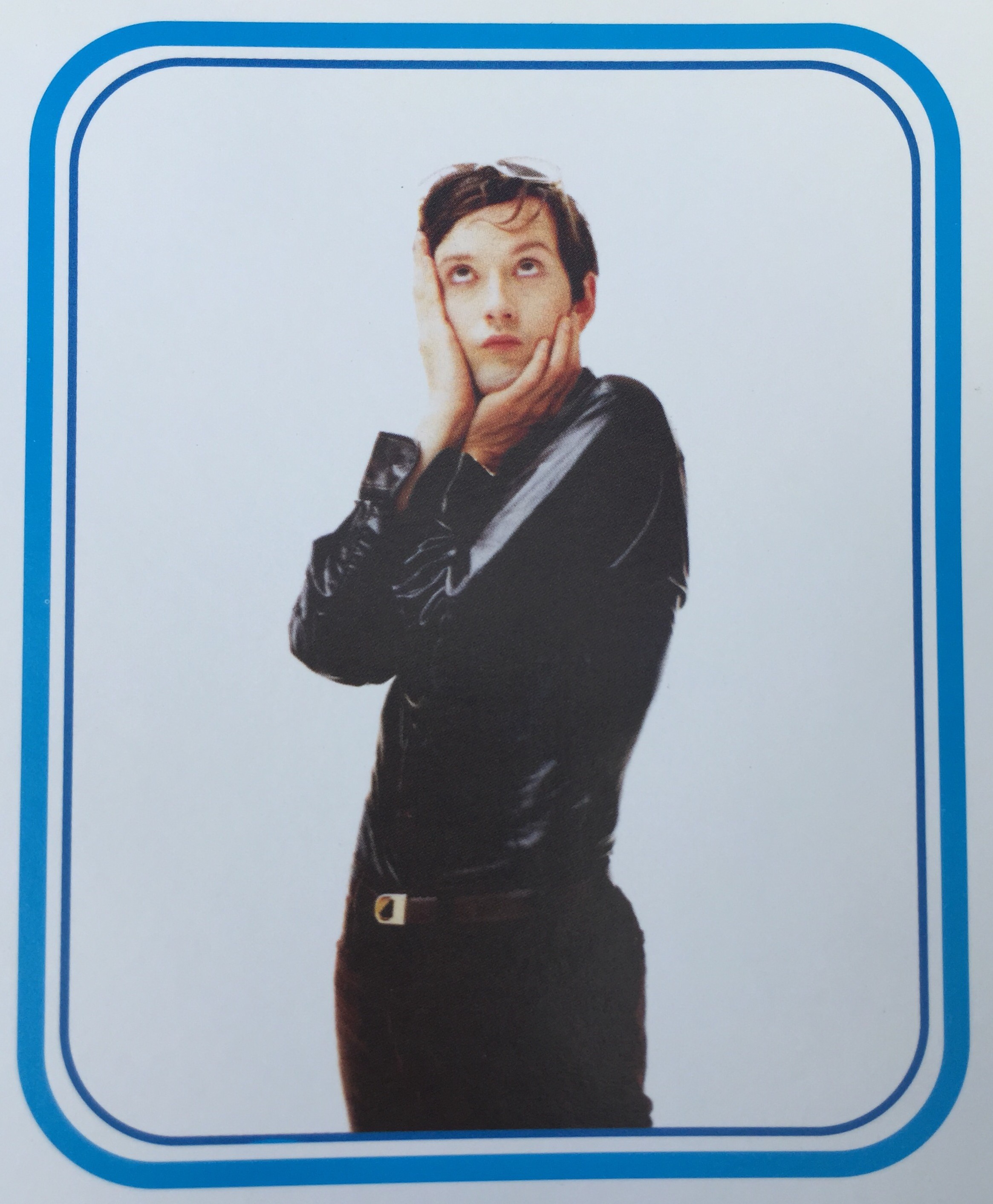
Pulp’s defining album, “Different Class” reached the top of the charts in 1995 nearly thirty years ago, in a move designed solely to make us all feel rather old.
In a year when the rest of Britain was deciding whether Blur’s “Country House” or Oasis’ “Roll With It” should be number one, Pulp slipped out of the wardrobe and quietly wrote the defining song of the times, the mix of righteous anger and danceability that was “Common People”.
Most of the album that followed, “Different Class” was written after “Common People” soared to #2 in the charts and the boost to Cocker’s confidence gave us that ode to the late ’80s rave scene (“Sorted for E’s and Whizz”) and the combination of real-life story and Laura Brannigan’s “Gloria” that was “Disco 2000”, not to mention one of the finest love songs anyone ever wrote, “Something Changed”.
It took Pulp sixteen years to become an overnight success. But the journey was what, in the end, made them great.
The low points
Picking out the toughest times in the life of Jarvis Cocker is like trying to pick your least favourite person in Love Island. There’s just so many to choose from.
As young as just five years old, Cocker narrowly survived a bout of meningitis, permanently damaging his eyesight.
Only slightly less traumatically, when Jarvis turned seven years old his mother made him wear lederhosen to school. His uncle had married a German woman and they sent him the leather shorts as a gift. “I was mortified” said Cocker, understandably.
Cocker’s childhood in Sheffield was not an unhappy one, although the spectacles and his lanky frame made him stand out from the crowd. Like many towns and cities in Britain at the time, Sheffield was a city where in Cocker’s words “You’d get these packs of blokes, all dressed the same in the white short-sleeved shirt, black trousers and loafers, and they’d call you a queer or want to smack you ‘cos they didn’t like your jacket.”
He and his friends would pretend to be in a band long before they had instruments “It just made it seem more interesting when you were walking down the corridor, imagining that we were a group and all the kids were clapping us.” explained Cocker, but it didn’t impress the girls, especially Deborah Bone, whom Cocker took a liking to. Deborah was, as Jarvis later explained “a girl who was born about two days after me in the same hospital. My mother and her mother knew each other, and I really fancied her when I got to about 13. Unfortunately, everybody else in the school fancied her as well, and we never got it together.”**
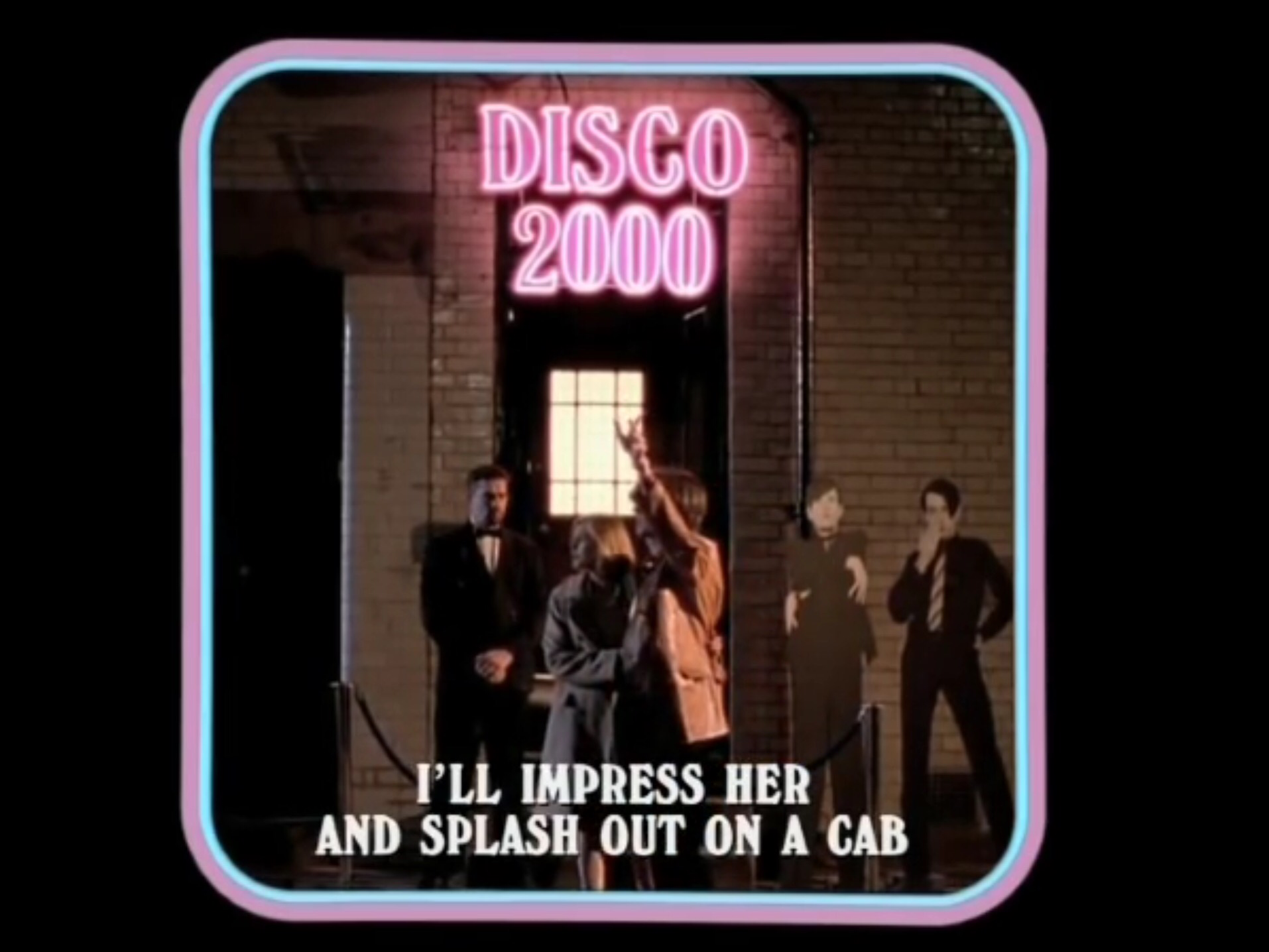
After leaving school things didn’t get any easier. Perhaps a low point was in November 1985 when he fell out of a window after he’d been trying to impress another girl called Adrienne* with his Spiderman impression. Jarvis fell 20 feet to the ground, breaking his wrist and ankle and fracturing his pelvis. Like a lanky Dave Grohl, Cocker fronted his next shows from a wheelchair, albeit a National Health one rather than a custom-designed Guitar Throne.
Jarvis was told the injuries sustained would eventually be debilitating. “When they took the plaster off me legs, the doctor said, ‘We’ve tried to put (your bones) back in place, but it’s impossible to do properly, so you’ll always have pain there. And in the end you’ll be in so much pain that we’ll have to fuse your foot to your ankle. Then you’ll never be able to move your foot again.’
On the other hand Jarvis Cocker’s lowest ebb might have been 1989. Nine years in, Pulp had failed to release a record in the previous two years, was shedding members every six months and their audience was dwindling.
By now, some gigs were more deserted than the Friends Reunited page for Pompeii High School: Class of AD78.
A disillusioned Cocker decided to leave Sheffield, having had his application for a degree course at St Martin’s College accepted, but this meant putting the band on hold and living in a squalid flat in a hostile and unfriendly Mile End. Cocker described the flat in the song Mile End, a b-side to “Something Changed” and also a song that featured on the “Trainspotting” soundtrack…
“It smelled as if someone had died / the living room was full of flies”.
Pulp guitarist Steve Mackey reflected “It was the end of the Eighties, a really bad time for us as nothing good had happened.” Cocker and Mackey meanwhile took refuge in the rave scene including one event that took place in a tunnel under the M25 originally built for wild animals to cross safely. “You’d go to these raves and it was like a spaceship had landed! Lights were flashing, there were sexy girls, the music was like Kraftwerk… it was like the future and you were part of it”.
Cocker described living in Mile End as “without any question, the worst nine months of my entire life”.
But perhaps the nadir was in 1991, when Pulp were now twelve years into their music career and were still going nowhere fast. They’d just sacked their manager, Jarvis had borrowed £5k off his grandma to make some demos, they wanted to exit a five album record contract just one album in. Having finally attracted major record company interest Pulp couldn’t cash the advance cheque as it would represent a breach of their existing contract.
They were in a mess…
In 1991 Rough Trade offered to manage Pulp, and a major label contract was the target. From then, the story of Pulp was one of a momentous rise in fortunes.
Single “Babies” was released on October 5th 1992, “Razzmatazz” followed in Feb 1993 and in July of that year Pulp finally signed to Island Records.
Lipgloss reached #50 in the charts – a first – in November 1993 and then Pulp had a first top 40 entry in March 1994 with “Do You Remember The First Time” which reached #33.
“His n Hers” would be the big breakthrough. Twelve years, eight months and four days after Jarvis first stepped into a studio, Pulp had finally made their “real” debut album.
“His n Hers” entered the album charts at number nine. The momentum was building.
In July 1994 Jarvis presented an edition of Top of the Pops and cheekily pinned a note to the inside of his jacket that read “I Hate Wet Wet Wet”, a band whose cover of “Love Is All Around” had spent an interminable time at the top of the U.K. Charts. This prompted Marti Pellow, the lead singer of the Scottish pop band, to describe Pulp as “indie nobodies”.
As an aside, in March of this year, Pellow played the narrator in Willy Russell’s Blood Brothers at Hastings White Rock Theatre. Well done him.
The origins of “Common People” date back to when Jarvis was at the Notting Hill Music and Video exchange swapping some records for a Casio keyboard. He played a riff to Steve Mackey who said “Oh yeah, that sounds like Fanfare for the Common Man”.
A seed was planted.
As we now know, the song’s lyrics were inspired by a rich girl, believed to be Danae Stratou, the wife of a former Greek Finance Minister Yanis Varoufakis, and who Cocker met at St Martin’s college.
“She thought of the lower classes as something quite exotic, and something she could go and see as a tourist….and use it in her own work. I told her she wasn’t trapped like they are.”
“She never wanted to sleep with me, unfortunately.”
Pulp finally recorded the song in January 1995. It was an obvious hit, so Island wanted to delay releasing it until just before the next LP would be ready, in September of that year. Had that happened, it’s doubtful Pulp would have been in the frame for their famous headline appearance at Glastonbury…
In the end, Common People was released on May 22 1995. It sold 70,000 copies in the first week and reached number 2 in the charts
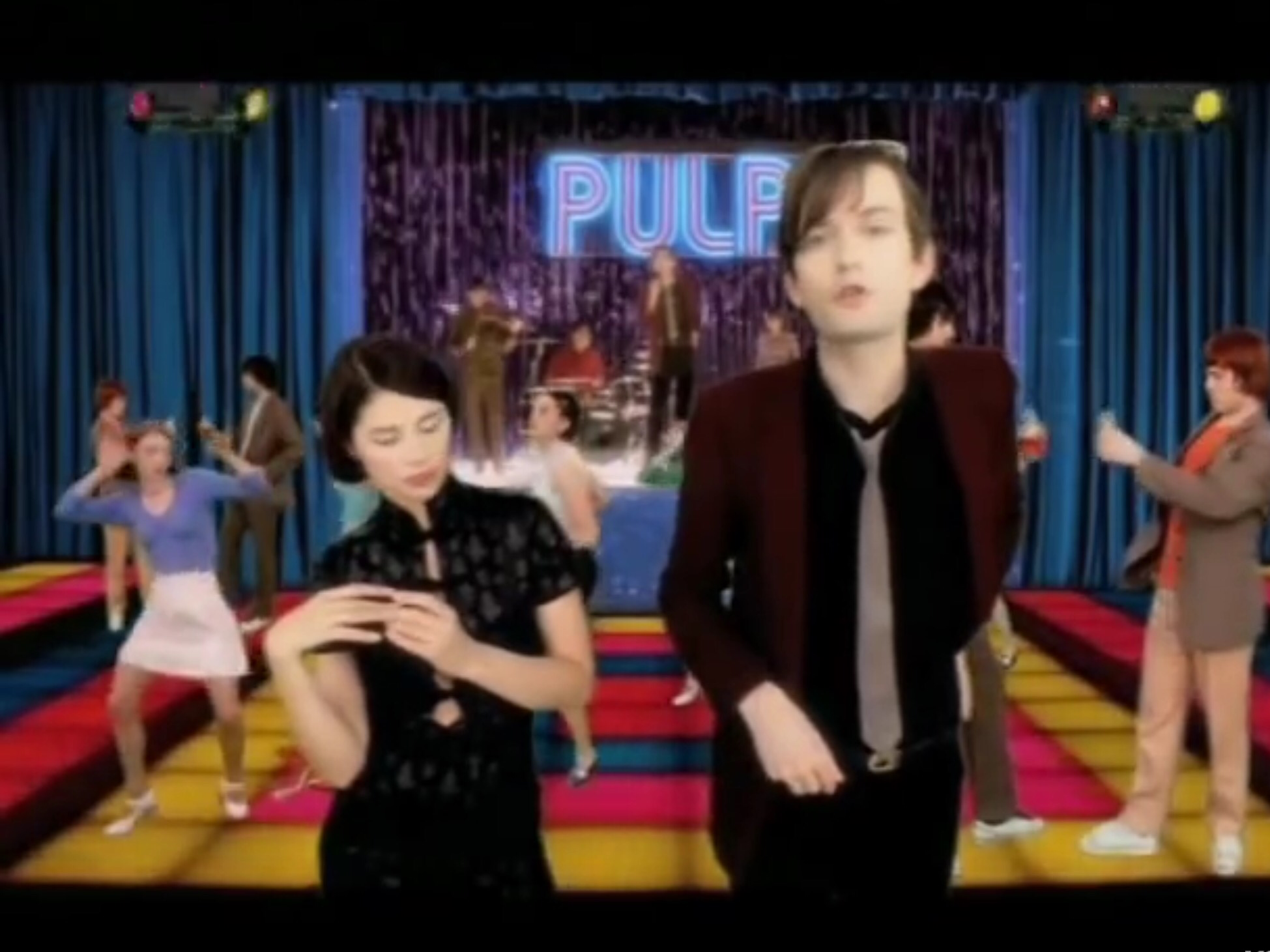
Stand Out Stand Ins part 1: Oasis
In April 1994 Pulp were asked by Oasis to step in for The Verve at Sheffield Arena after Nick McCabe broke a finger.
Pulp played the still unreleased Common People.
Noel Gallagher said “The whole audience went beserk and even me Mam…went “God I like that one, what’s that one called?” and I went “I don’t even know who they are – I don’t know what the song’s called.”
Never short of confidence, Noel added “And we all sort of looked at one another and went “F— hell. It’s a good job we’re good”.
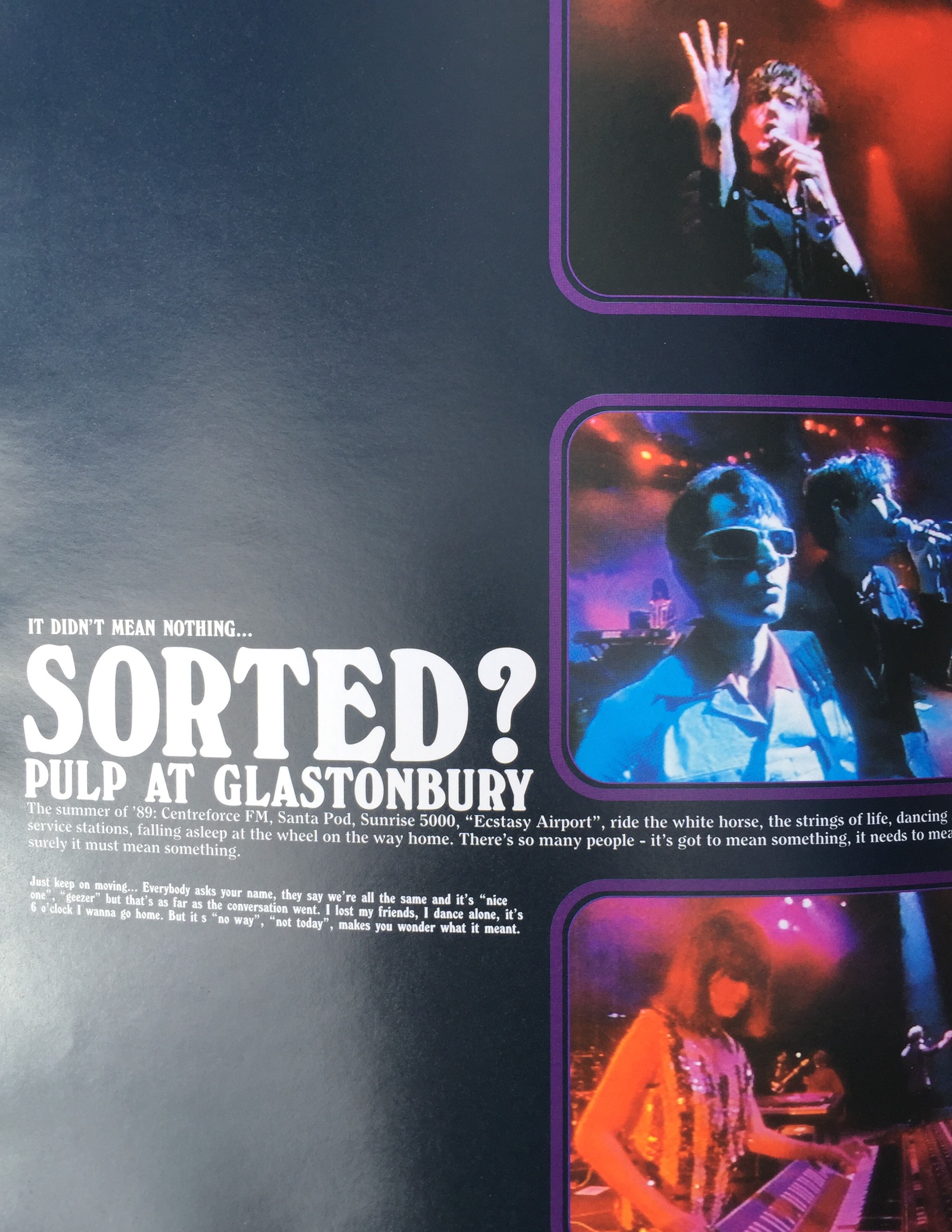
Stand out Stand ins part 2: Glastonbury
Towards the end of June 1995 Pulp got a phone call. John Squire of The Stone Roses had broken a collar bone and the band’s Glastonbury headline appearance would have to be cancelled. Rod Stewart wasn’t available, so could Pulp step up to replace them?
It was so last minute, all the hotels were booked up, so the band bought a couple of large frame tents and some sleeping bags….
The set was triumphant, a mixture of “His n Hers” tunes and a few songs never heard before being played for the first time.
Jarvis Cocker introduced new song “Mis-Shapes” as a song about people who “laugh at you because they think you’re the weird one. And this is how we are going to have our revenge on them”.
And then “Common People”. The last song of the night.
Said Cocker, introducing the song, “If you want something to happen enough then it actually will happen. And I believe that. In fact that’s why we’re stood on this stage after fifteen years.”
“So if a lanky get like me can do it, and us lot, then you can do it too”
Drummer Nick Banks said “the crowd roared and it was amazing. As Jarvis started singing, basically you could hear the crowd louder than you could hear him and that was….the hairs at the back of your neck just went. ”
“In late 1994 me and Jarvis had this concept to make an LP that was 12 pop songs and every one could be a single” said Steve Mackey. “We even talked about Benny from Abba to produce it”.
Jarvis Cocker had overcome childhood illness, his awkwardness, being picked on for looking different, having no money, being told he might not be able to walk, an East End flat suited to a serial killer, endless nights of no audiences, no record deals, and being sent to a school in Sheffield wearing leather shorts. He’d then turned things around, headlined Glastonbury and written the best song of the nineties.
All he had to do now was write an album to go with it.
And what’s amazing about this, what is extraordinary about the Different Class album, is how those years of frustration, bullying, humour and endurance came pouring out.
Because Jarvis Cocker wrote the rest of the album – eight songs in total – to make a timeless, classic album that reflected upon all these events in Cocker’s life.
And he did it in just two nights.
“I did five one night and three the next night. I just sat in me sister’s kitchen with this brandy me mother had brought back from Spain and I just kind of necked that…”
Something Changed
Pulp’s low points turned out to be the things that made the band special. Like Cocker’s musings on the happenstance of love in “Something Changed”, where would Pulp have been if these things hadn’t occurred?
Looking back, the key to what made Pulp special was the change that occurred in Jarvis during his spell in a wheelchair in 1985.
“In the hospital, I had a lot of time to think. And there was a miner in the bed next to me who’d been in an accident. He was a right nice bloke. The only contact I had with miners before was during the strike. I wanted to support it, but I always remember I was sat outside this pub and these striking miners came by and took the piss out of me because they thought I looked an idiot. Well, I did look an idiot at the time actually.”
“So it was like, I support you in theory but you probably want to cave my head in. Of course, it was just four blokes, not the entire mining community. And I was guilty of generalisation and almost despising my own background.”
“But meeting that bloke in the hospital encouraged me to think I’d been looking in the wrong direction for inspiration. I’d been in Pulp since I’d left school. I’d had this attitude of ignoring day-to-day things, I was hiding from life really, thinking I didn’t have to deal with it because I’d become famous soon. I turned round the other way after that. I tried to get into the tiniest details of life, trying to scrutinise everything – I started to write lyrics that way too.”
In other words, had Cocker not fallen out of a window trying to impress a girl, he might never have written such beautifully crafted vignettes of people’s lives like “Disco 2000”.
Had he not stood out from the crowd, he might not have felt such a “Mis-shape”.
Had he not moved to London in despair at his lack of success in 1989, he would never have caught the eye of a girl at St Martin’s College studying sculpture, or experienced the rave scene described in “Sorted for E’s and Whizz”
Or lived in that flat in Mile End.
And Cocker’s lowest point?
Actually that came later, after all the success. In 1996 Jarvis was enjoying himself perhaps a little too much. He was living the dream in a club off Oxford Street, “doing some drugs in a toilet” when Cocker heard a voice from the other side of the cubicle. It was the drummer from Dodgy, and he said simply “Have you been larging it a lot recently?”
At that moment it hit home.
“No disrespect to Dodgy’s drummer” Cocker later mused, “but that kind of made me think, ‘No, you’ve taken a wrong turning here….”
Pulp’s Different Class reached Number One in the UK album charts in November 1995. It won the Mercury Music Prize in 1996 and has sold over a million copies in the UK alone.
Footnotes:
* allegedly the then-girlfriend of a band mate.
** Deborah Bone went on to be a pioneering mental health worker, and was awarded an MBE in the New Year honours list shortly before her death aged 51. She had been diagnosed with multiple myeloma, a type of bone marrow cancer, and died hours after receiving the honour for her services to children and young people. Bone developed ways to help young people cope with high stress and anxiety. She was also, as you have probably guessed, the Deborah in “Disco 2000”. In a nice touch, Cocker sang the song to her at her fiftieth birthday party. They never did meet at the fountain down the road. It was demolished in 1998.
Further reading:
A new book: Good Pop Bad Pop by Jarvis Cocker has just been published
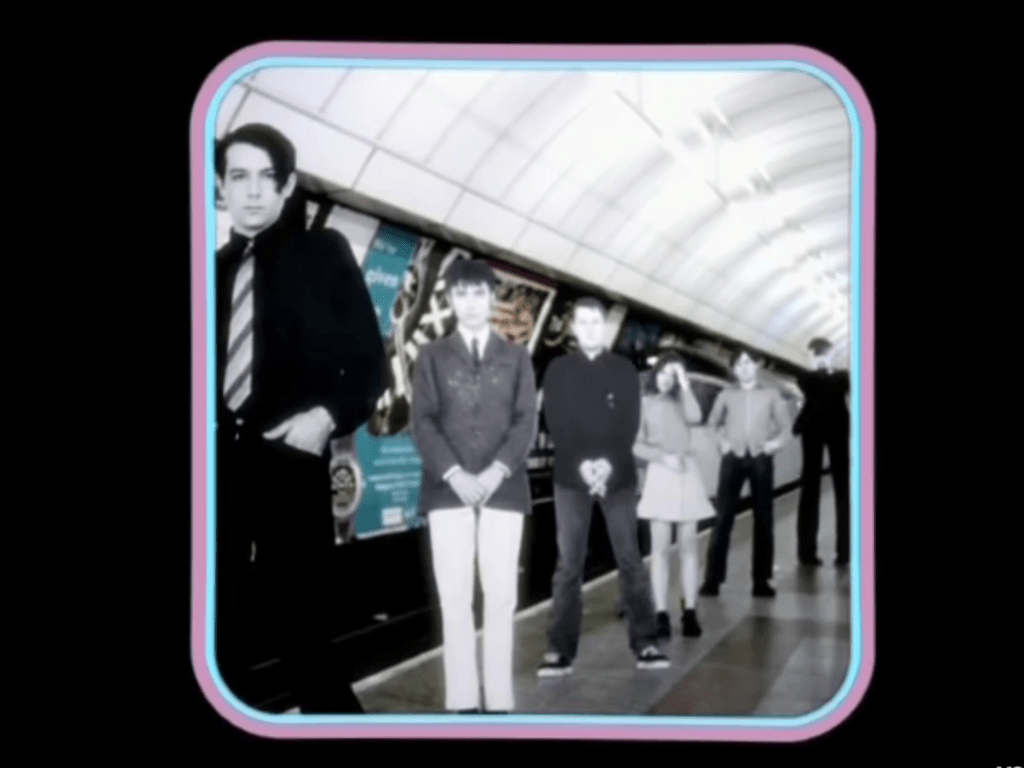


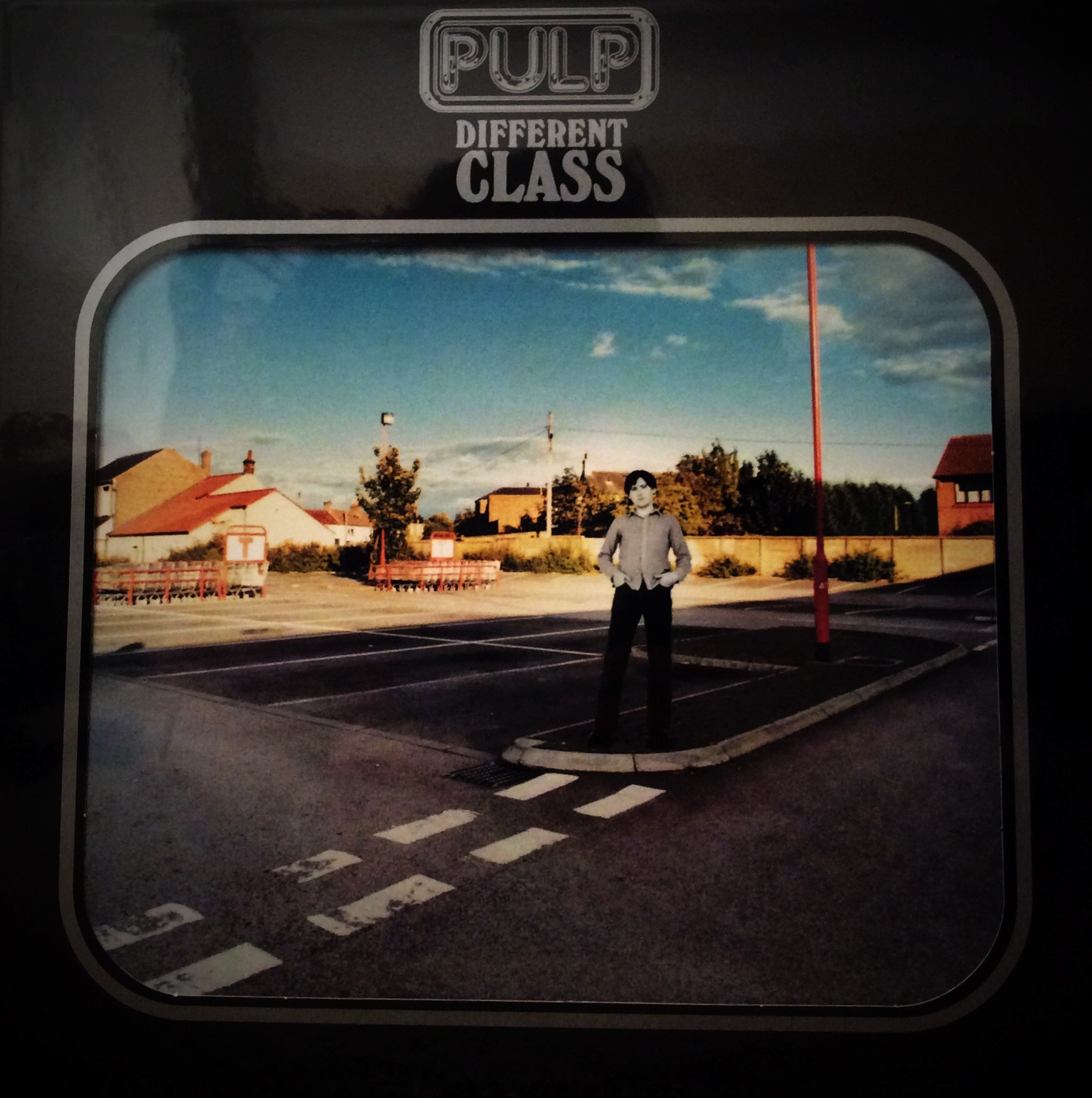

Leave a comment